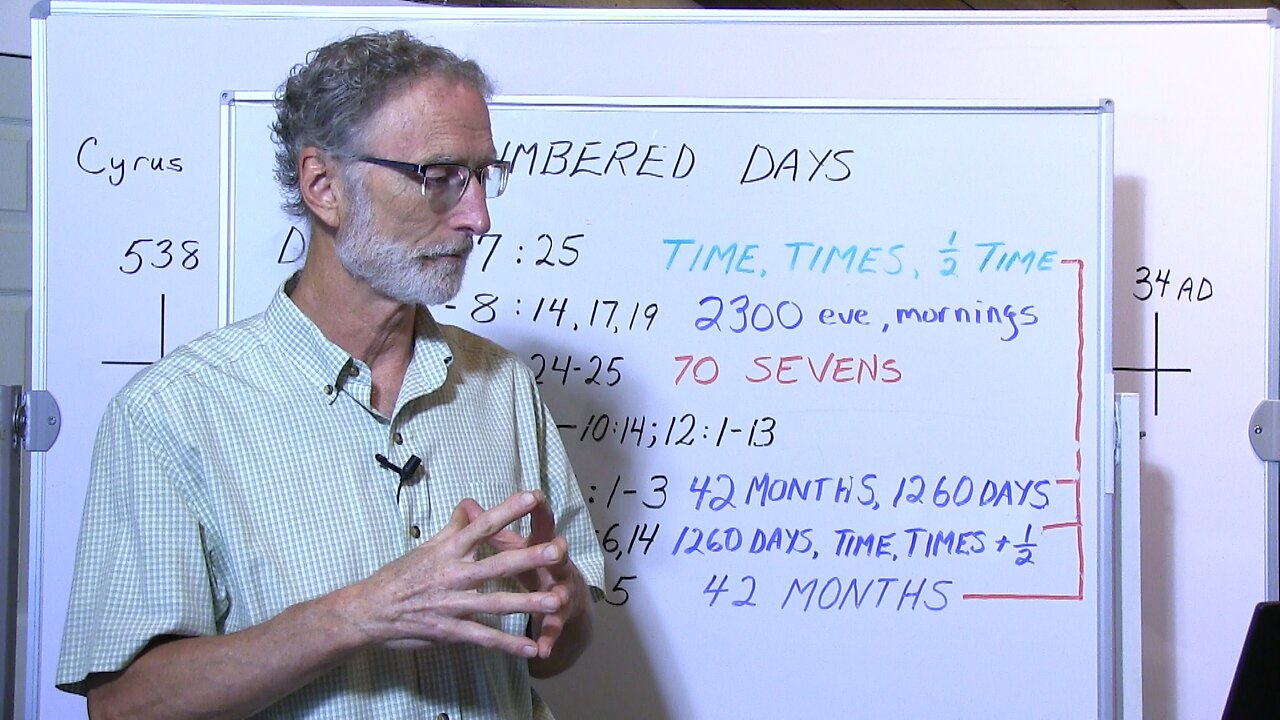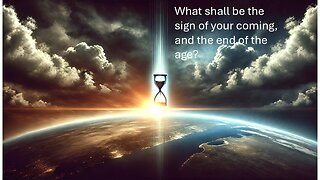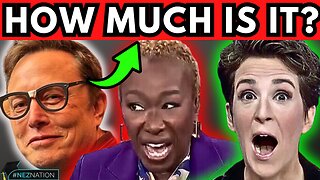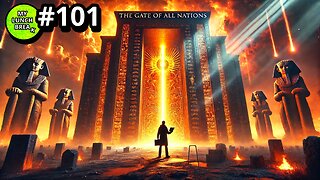Premium Only Content

Prophecy vs. Prophets' Understanding, Part 1
The Bible is full of example after example of key Biblical prophets, disciples, and apostles giving or citing a true prophecy, but applying a premature fulfillment to their day, even if the prophecy was, in some cases, referring to events that will transpire thousands of years into the future. They were indeed men ahead of their time. Join Tom as he shares the importance of understanding of how God leads prophets.
Examples:
Peter declared on the day of Pentecost that Joel's prophecy had just been fulfilled, when 2000-years later Joel 2:28-32 is clearly still future. There are two dangers with this: Do we discard Peter because he prematurely applied prophecy that was clearly for the time of the end? Or do we discard the possibility of an end time fulfillment to what was clearly an end-of-time prophecy just because Peter declared a fulfillment in his time?
Similarly, John the Baptist declared in Matthew 3:11-12 a number of events that were covering 3000 years (the first and second comings and the end of the millennium). But John spoke the prophecy as though it would all be fulfilled immediately by the Messiah. This was apparently how John understood them, and how his listeners would have interpreted John's message. Again, do we discount John the Baptist (who Yeshua said was the greatest of the prophets) because what he said was going to happen didn’t, even as yet 2000 years later? Or do we stubbornly insist that those events already happened and refuse to look for a future fulfillment to much of what John said?
Why does this matter? God never reveals all truth to any of His prophets, therefore leaving them with an incomplete understanding regarding the timing of the events foretold. If we demand from the prophets a perfect knowledge of not only events, but the timing of those events, we are in danger of resisting any teachings and their related warnings regarding the actual future fulfillment.
-
 1:32:34
1:32:34
Tom Stapleton/EndTimesProphecy
21 days agoSigns of His Coming | Sukkot 2024 #3
87 -
 17:06
17:06
Professor Nez
5 hours ago🚨BREAKING: Elon Musk to BUY MSNBC!? Dems STUNNED by Brian Williams’ Viral Video!
28.2K31 -
![If You Smell LALALALA What CHiLi IS COOKING!!... #RUMBLETAKEOVER [Overwatch 2]](https://1a-1791.com/video/s8/1/e/s/X/3/esX3u.0kob-small-If-You-Smell-LALALALA-What-.jpg) 4:27:40
4:27:40
CHiLi XDD
7 hours agoIf You Smell LALALALA What CHiLi IS COOKING!!... #RUMBLETAKEOVER [Overwatch 2]
19K1 -
 LIVE
LIVE
Delnorin Games
8 hours ago🔴 Live - Star Citizen
989 watching -
 1:39:44
1:39:44
HELMET FIRE
9 hours agoDEADROP IS BACK!
121K6 -
 10:03
10:03
Tundra Tactical
11 hours ago $13.55 earnedBrandon Herrera Vies Bid for ATF Director!
75.9K15 -
 22:01
22:01
DeVory Darkins
1 day ago $33.21 earnedHakeem Jeffries SHUTS DOWN The View as Matt Gaetz Speaks out
66.7K110 -
 2:02:54
2:02:54
Mally_Mouse
10 hours agoLet's Play!! - Spicy Saturday
48.1K1 -
 1:33:06
1:33:06
Slightly Offensive
11 hours ago $27.71 earnedAre You Ready for What's Coming Next? | Just Chatting Chill Stream
66.8K39 -
 32:10
32:10
MYLUNCHBREAK CHANNEL PAGE
1 day agoThe Gate of All Nations
140K61